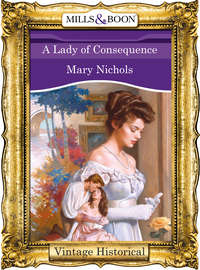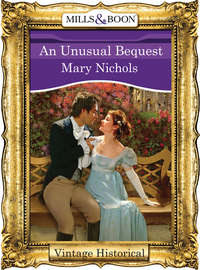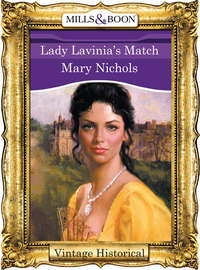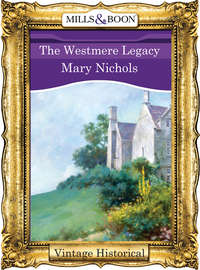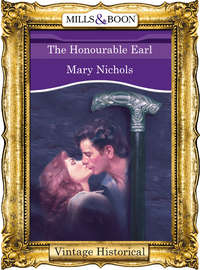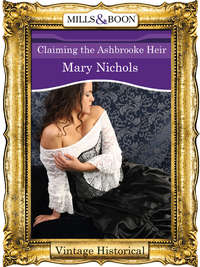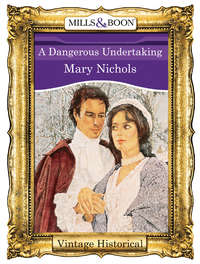
Полная версия
The Captain's Kidnapped Beauty
‘This chaise is a sturdy vehicle,’ she said, indicating a travelling coach in forest green, its only decoration lines of pale green about the body work and round the rims of the wheels. It was highly varnished, elegant but not ostentatious.
He walked all round it, rocked it on its springs, jumped on the coachman’s box with its red-and-green-striped hammercloth and sat there for a few moments before jumping down and climbing inside. The interior was upholstered in green velvet and there were light green curtains at the windows. He sat a moment and stretched out his legs. There was little leg room for one so tall, but that was not unexpected; he had yet to ride in a coach which allowed him the luxury of stretching out.
Charlotte watched him without speaking. He was undoubtedly athletic, climbing up and down with consummate ease, and the way he had climbed on the box suggested he was no stranger to driving a coach. He was self-assured and would not be easy to gull. Not that she intended to deceive him; that was not the way Gilpins did business. Their reputation for honesty and fine workmanship had been well earned over the years and she would do nothing to jeopardise it.
He emerged from the coach and rejoined her. ‘I think it will do me very well,’ he said.
‘Would you like to look at others before you make up your mind?’
He agreed and she showed him several more, some more sumptuous, others well used with scuffed paint which she told him would be remedied before the coaches were sold on. Some were extra large and cumbersome, needing at least six horses to pull them, some too lightweight for any but town roads.
‘No,’ he said, at last. ‘You have chosen well, Miss Gilpin. I will negotiate a price with Mr Gilpin.’
‘The price to buy is one hundred and nineteen pounds sixteen shillings,’ she said firmly. ‘We give value for money, Captain, and do not enter into negotiation. If that is too much …?’ Her voice faded on a question.
‘No, I did not mean I would beat him down,’ he said hastily. ‘The price seems fair enough. I meant that I would need to arrange for horses and harness and for the coach to be fetched.’
‘Let us return to the office and conclude the transaction,’ she said. ‘The doctor will have gone by now.’
They crossed the yard again and entered the main workshop where several men were using ropes to lower a coach body down the stairs. Joe, supporting himself on two sticks, was standing directing operations.
‘What did the doctor say?’ Charlotte asked him.
‘’Tis but a sprain,’ he answered. ‘I must rest it for a week or two and then all will be well.’
‘You will not rest it by standing there. The men can manage without you for a week. Ask Giles to take you home in the gig, and do not come back until you are recovered. You will lose no pay.’
‘Yes, Miss Charlotte. Thank you, miss.’
Charlotte moved on, followed by Alex. ‘Do the men usually obey you so promptly, Miss Gilpin?’ he queried. He had noticed the adoring look in Joe’s eyes as he answered her. The poor fellow was evidently in love with his employer’s daughter. He wondered if she knew it.
‘Yes, why not? One day the business will be mine and I will have the full running of it, but please God, not for a very long time.’
‘Really?’ he queried in surprise. ‘I had thought a brother or a husband would take over.’
‘I have neither brother nor husband.’ She was used to people making assumptions like that, but it never failed to raise her hackles and she spoke sharply.
‘I beg your pardon,’ he said. ‘I can see you are a very determined woman.’
A woman, she noted, not a lady. There was a world of difference in the use of the words and reminded her of her conversations with her father on the subject. It simply stiffened her resolve to prove she was as good as any man when it came to business. It was far more important than being a so-called lady. Or a wife, come to that.
They entered the office where her father was standing looking out of the window on to the busy street, watching the doctor’s gig disappearing up the road. ‘It’s time he changed that vehicle,’ he said aloud. ‘He’s had it three years now and it is beginning to look the worse for wear. I must persuade him to turn it in for a phaeton, much more befitting his status as a physician of the first rank.’ He turned from the window to face them. ‘Captain Carstairs, did you find something to suit?’
‘The captain is going to buy Lord Pymore’s travelling chaise,’ Charlotte told him, fetching papers from a cupboard and taking her seat at her desk. ‘He has agreed our price.’
‘Good.’ Henry said. ‘Captain, do you need embellishments? Heraldry? Additional lines, scrolls perhaps?’
‘No, thank you, I cannot wait for such things to be done. It will do me very well as it is, but I do need harness and cattle. Miss Gilpin tells me you can also supply those.’
‘Indeed we can. I pride myself on dealing in animals sound in wind and limb. You may safely leave those to me. Do you have a coachman?’
‘Yes,’ Alex said, thinking of Davy Locke, who had been his servant on board ship and now went by the grand title of valet, though anyone less like a valet was hard to imagine. He was an untidy giant of a man, but a good man to have beside you in a tussle, whether it be confronting lawbreakers or struggling to get into a tight-fitting coat. He was, surprisingly for an ex-seaman, very good with horses. He put it down to working on a farm before he was pressed into service with the navy. A man of many talents was Davy Locke.
‘I shall have the paperwork drawn up in a few minutes, Captain,’ Charlotte put in. ‘You are welcome to inspect the premises while you wait.’ She gave him what she considered to be a condescending smile. ‘You may learn something of coachmaking.’
Alex, recognising the put-down for what it was, smiled, bowed and left the room, followed by Henry Gilpin, who went immediately to inspect the coach body which had been safely brought down to the ground floor and was being set upon a wooden cradle waiting to receive it. It had yet to be set on its undercarriage, painted and decorated and the interior finished, but even so Alex could appreciate the skilful work of the woodworkers.
Henry began explaining some of the processes to him, but Alex was hardly listening. He was thinking about Miss Gilpin. She was certainly very touchy about her gender. Perhaps she wished she had been born a boy. She was undoubtedly handsome with fine eyebrows, a straight nose and a well-defined, determined chin, but he would not describe her as feminine, not in the way he would have used the word. Her gown was decidedly practical, in a heavy grey taffeta, having only the slightest of false hips, and her quilted stomacher was made to match the gown and had no decoration beyond a satin bow on the square neckline. There wasn’t an ounce of lace on it anywhere. It was certainly not the height of fashion. She wore her own rich brown hair pulled back into a thick roll on top of her head and fastened with combs. She wore no gloves and her fingers were ink-stained.
And yet … and yet, she had the most expressive grey eyes. There was intelligence behind them, and humour, too, something he could admire. Was she really as competent as she appeared or was there, underneath that façade, a woman as weak and fickle as all her gender? Would she collapse in a flood of tears as soon as her self-sufficiency was put to the test? Did she really know the ins and outs of a coach-building business or was her father simply humouring a spoiled daughter? He found himself wanting to know the answers, to engage her in conversation, to find out what she was really like under that severe exterior. He felt sure such discourse would not be shallow and meaningless. It was a pity he was leaving town so soon, but then, on reflection, perhaps it was not. She was clearly not the sort for mere dalliance and he certainly did not wish for anything deeper, not after what had happened with Letitia. She had soured him for all women.
Why on earth had he suddenly thought of Letitia? He had buried that experience deep inside him where it could not surface, or so he had thought, but standing looking at half-a-dozen workmen manhandling the body of a coach with the aid of pulleys, he was suddenly back in his salad days.
He had met Letitia Cornish on a voyage out to India. Her father was a wealthy nabob and he the mere second lieutenant of an East Indiaman, plying back and forth between England and Calcutta, carrying European wines, furniture, glassware and even carriages on the outward journey, returning with spices, precious stones, ornaments, carpets and tigerskin rugs. She had been patrolling the deck and had stopped to gaze out over the stern at the wake, as if wishing she were back where she had come from. Hearing his footstep behind her, she had turned to speak to him. ‘Lieutenant, I am not in your way, am I?’
‘Not at all, Miss Cornish, but there is blow coming up and I advise you to go below. The sea is like to become very rough. Allow me to escort you.’ It was couched as a request, but she was expected to obey, which she did reluctantly. ‘It is so stuffy in the cabin,’ she said. ‘I prefer the fresh air.’
‘I fear it will become a little more than fresh,’ he had said, smiling as he accompanied her to the companionway. ‘When the storm is over, I will come and fetch you and you may take the air again.’
He had kept his word and escorted her back on deck as soon as the havoc caused by the storm had been cleared away and they were once more sailing on an even keel. She was looking white-faced, but assured him she had not been sick and would be right as rain as soon as she was up in the fresh air again. Her father had not emerged from his cabin. In spite of being a frequent traveller between England and India, he was not a good sailor and neither was Letitia’s maid and she was often left to her own devices. Thus they often met when he was on watch and she was patrolling the deck and they would stop and talk. In his eyes she was perfection with her shining golden hair and clear blue eyes.
He learned she was eighteen, a year younger than he was. Her mother had died years before; she could hardly remember her and Letitia had been brought up by her father with the help of an elderly aunt. Now she was grown up, her father was taking her to India where they expected to stay for several months while Mr Cornish assembled a new cargo to take back to England and after that she was to be brought out in London society. He told her about his life at sea, how he hoped to follow in his father’s and uncle’s footsteps and become a master mariner for the East India Company. By the time they reached Calcutta they were in love.
Her father would have none of it when Alex had approached him for permission to propose. ‘A penniless lieutenant—I should think not!’ he had said. ‘Whatever gave you the notion I would entertain a scapegrace like you for a son-in-law? After her money, are you? Think to make yourself wealthy at my expense?’
‘No, sir, certainly not, sir. I love your daughter and she loves me.’
‘Love, bah! What is that but a weak indulgence? Letitia will marry one of the young gentlemen I pick out for her when we return to London. And every one of them will have a title and some standing in society. She is wealthy enough and comely enough to take her pick. You, sir, are beneath her notice.’
Alex had been furious and had to use all his self-control not to lash out at the man, but young though he was, he knew alienating her father would not endear him to Letitia. Instead he turned on his heel and left with the man’s derisive laughter echoing in his ears. But he was not yet ready to give up. He knew Letitia liked to ride out very early in the morning before the heat became too intense and so he contrived to be out on horseback at the same time and prevailed upon her to dismount and talk to him. He had been hoping to persuade her to defy her father and run away with him. How foolish that notion was he had not realised at the time. She had tearfully refused to do any such thing. Her dear papa was always right and she would obey him as she always had.
He had not been able to understand her unquestioning acceptance of the fate laid down for her and continued to protest until the time came to part. ‘Goodbye, Alex,’ she had said and reached up to kiss his cheek and then remounted with the help of her syce and was gone, cantering away, raising the yellow dust.
She had not truly loved him or she would have defied her father, he told himself, she had been having a game with him. It was easier to be angry than admit he had a broken heart and, as his ship was loaded and made ready for the return journey, he left her behind, vowing that no woman, no matter how beautiful or how wealthy, would ever humiliate him like that again. Two years later he heard she had returned to England and married the Earl of Falsham, so her father had had his wish.
He had left the merchant service and had a spell in the cavalry in the hope that such a radical change to his way of life would cure him, but the lure of the sea was still in his blood and he had sold up and joined the navy. In due course he had become captain of a frigate, but with the end of the seven-year-long war with France two years before he had found himself with no ship and on half-pay. It was then he became involved with the Society for the Discovery and Apprehending of Criminals. And now his life was about to change again and he was not at all sure he welcomed it.
Miss Gilpin came out from the office, carrying a sheaf of papers. ‘Have you learned anything of coachmaking, Captain?’ she asked.
‘I have concluded it is a very complicated business,’ he answered. ‘I have been watching the men put the coach on its cradle. They make it look easy.’
‘They are all experienced men, Captain, though we shall miss Joe Smithson until he is well again. I collect I did not thank you properly for your help in getting him up. He is a big strong man, but you lifted him with ease.’
He bowed towards her. ‘My pleasure, Miss Gilpin.’
‘Your carriage will be ready tomorrow. My father will personally inspect it for defects before he allows it to be delivered, and of course the horses and licence have to be obtained so we cannot do it any sooner. I hope that is convenient for you.’
‘Entirely,’ he said, bowing. If he had hired a chaise instead of buying one, he might have been on his way before that, but Miss Gilpin had been right; he would need to travel back and forth frequently on society business, so it made sense to buy. ‘But I will fetch it from here. I mean to begin my journey immediately. Shall we say noon?’
She looked at her father. ‘Will you have the horses and harness by then, Papa?’
Mr Gilpin was only half-listening to their exchange, being more concerned with inspecting the half-finished coach and giving instruction to the carpenters who were to fix the moulding along the edge of its roof. ‘Yes, yes, I shall go to Tattersalls this afternoon.’
‘How will you pay?’ Charlotte turned back to Alex. ‘Credit terms can be arranged, if you wish.’
Alex resented the inference that he could not pay for anything he ordered. Just because he elected to dress simply, did not mean he was without funds. Even before inheriting his uncle’s estate he had been a wealthy man. He had earned good prize money as a sea captain and his father had left a fortune as a result of his captaincy of an East India merchantman. Each captain was allowed to carry a certain tonnage on their own account, for which privilege they paid five hundred pounds. It was money well spent; both Alex’s father and his uncle, the Marquis of Foxlees, had become exceedingly wealthy with this trade. ‘There is no need for that,’ he said, his tone conveying his annoyance. ‘It may be considered eccentric, but it is my strict rule to pay my dues on demand. I shall bring a money order on my bank when I come tomorrow.’
‘Thank you, Captain. Then the price is as we agreed.’
He took his leave and went on his way, first to his bank to arrange the draft then to his club where he intended to dine. He had barely sat down and ordered a capon and a couple of pork chops, when he was joined by Jonathan Leinster. ‘What, not gone home to the delectable Louise?’ he asked him.
‘No she has taken the baby and gone to visit her parents. I decided an evening in town would be more congenial than going back to an empty house. I am promised to Lady Milgrove’s soirée, later. What about you? I had thought you on your way to Norfolk.’
‘I needed a coach to convey me there and decided to buy one, so I have been at Gilpin’s.’
‘You can’t go wrong there. They have a reputation for the best, but not cheap, by no means cheap.’
‘That I discovered.’
Jonathan turned to give his order to the waiter before continuing the conversation. ‘Did you meet Miss Gilpin?’
‘Indeed I did. She seems to think she runs the business.’
Jonathan laughed. ‘Not quite, but her father does not disabuse her of the idea. No doubt she will learn the difference when she comes to wed.’
‘Is she engaged, then?’
‘No, but her papa has been putting it around that he is looking for a title for her.’
‘And no doubt she will marry whoever Papa picks out for her.’
Jonathan shrugged. ‘Who’s to say? I am glad I am married and not in the running. I think she will be a veritable harridan and hard to handle.’
‘Do you say so?’
‘Yes. You saw her. Do you not agree she is something of an antidote?’
‘No, I can’t say that I do,’ Alex said slowly. ‘She could hardly work in the business dressed in the height of fashion with hips a mile wide and coiffeur a foot tall.’
‘I don’t see why she has to work in the business at all. Gilpin is prodigiously wealthy and can indulge her in whatever she wants.’
‘So he intends to buy her a title, does he?’
‘So it seems.’
‘Then I hope she has the good sense to resist.’
Jonathan looked sharply at his friend, a look that was not lost on Alex, who quickly changed the subject. ‘I did not fancy riding to Norfolk by stage and was going to hire a conveyance, but decided to buy one, after all. I shall need it if I am to come up to town for our regular meetings at Trentham House.’
‘That’s true, and neither can you shut yourself away in the country away from society. You will have to start looking for a wife now you are a marquis.’
‘Oh, I shall, shall I?’
‘Of course. You will need an heir.’
‘There is plenty of time for that.’
‘How old are you, Alex?’
‘I am thirty-four.’
‘Good heavens, there is not a moment to lose! You will be an old man before you know it.’ It was said with mock dismay which made Alex laugh. And then, after a pause, ‘Come with me to Lady Milgrove’s.’
‘I will hardly find a wife there,’ Alex said, still laughing.
‘Perhaps not, but more to the point the evening is in aid of the Foundling Hospital, a charity close to Louise’s heart and I promised her I would go. You do not leave town tonight, do you?’
‘No, I am to take delivery of the chaise tomorrow at noon, but I shall be on my way directly after that.’
‘So, you’ll come? I will enjoy it the more if I have company.’
‘Very well, I will come.’
Their food arrived and they set to tackling it with hearty appetites.
‘No sign of those two escapees, then?’ Alex asked.
‘No. I am persuaded someone is sheltering them. I sent Sam Roker into the rookeries where they might seek refuge, to see if he could discover any news of them, but so far nothing.’
Sam was the only one of the society who could not be called a gentleman. Officially James’s servant, he came and went according to the needs of its members, being a great one for disguise and able to speak the cant of the ruffians who inhabited the seedier parts of the city.
‘No doubt they will turn up when you least expect it,’ Alex said. ‘If you need any help, call on me.’
‘I will, if you are not too busy courting.’
‘If you do not desist from your nonsense, I shall leave you to go to Lady Milgrove’s on your own, my friend.’
Jonathan held up his hands in surrender. ‘Not another word. Shall we have a hand of faro to while away the rest of the afternoon?’
Chapter Two
‘I’ve taken on some help for the men,’ Henry told his daughter as they rode home in the Gilpins’ town coach that evening. ‘He arrived in the works this afternoon and said he had heard we were without our overseer and he was looking for employment.’
‘How did he know about Joe?’
‘I’ve no idea. I expect one of the other men said something to him. I told him Joe would only be absent a few days and would then be back, but he said he understood that, but he had a wife and little ones and any work of however short duration would be a help. He had good references, so I told him he could start tomorrow, but not as an overseer. He accepted that. His name is Martin Grosswaite.’
‘We could have managed.’
‘We could, but it would be easier to have another man to help with the bodywork. We are to start a new landaulet tomorrow and we are already short-handed with Colin away sick.’ Colin was one of their carpenters and he had gone down with an infection on his lungs, brought about by the wood dust that flew everywhere on the upper floor, which was another good reason for keeping that side of the manufacture away from the painting, varnishing and upholstery.
‘Is he a wood worker?’
‘He said he could turn his hand to most things.’
‘Then I hope you do not come to regret it, Papa.’
He turned to her in surprise. ‘Now why should I do that, child?’
‘Papa, I am not a child.’
‘You are to me. You will be my child however old you grow. Still, I will try to remember not to address you thus. Now why do you think I might regret it?’
‘A strange man walked in off the street and you took him on without checking him out. That is unlike you.’
‘He had references from Sir Elliott Foster.’
‘Did you have them confirmed? They could easily be forgeries.’
‘Do you take me for a gull? I have written to Sir Elliott asking him to confirm what he has said about the man. In the meantime, I shall put him to work. I only tell you that you may not be startled when he arrives for work tomorrow. He said he would have to arrange lodgings first so he will not arrive until after noon, but he knows our normal hours of work.’
‘You know best, Papa,’ she said meekly. She knew her father was letting her know who was in charge, which was undoubtedly because she had taken over the selling of the coach to Captain Carstairs. He prided himself on his own salesmanship and besides, he was not altogether reconciled to her working in the business. She knew better than to continue arguing with him. Instead she said, ‘Are you going out this evening, Papa?’
‘I had a mind to attend the musical recital at Lady Milgrove’s. There is a young violinist who is making a name for himself and I believe he is going to play some of Handel’s music. At any rate, as one of the Foundling Hospital’s trustees, it behoves me to go. Shall you come with me?’
‘Yes, Papa, I should like that.’ She smiled and added, ‘So long as you do not call me child and so long as you do not attempt any matchmaking.’
‘Oh, I doubt there will be any eligibles at an occasion like that, fusty old men like me, I shouldn’t wonder, and aged dowagers.’
For the most part he was right; the audience seem to have arrived in pairs, married or engaged or widows with companions—all except Viscount Leinster and Captain Alexander Carstairs. The viscount was happily married and the captain ineligible in Mr Gilpin’s eyes, so Charlotte felt able to relax and enjoy the music which was very fine.
During the interval when everyone was invited to partake of refreshments, Charlotte found herself standing next to the captain in the line waiting to go to the long table in the dining room, which had been set out for guests to help themselves to a plate of the plentiful food on offer. Her father had disappeared into the library with another of the trustees and had left her to fend for herself, which was typical of him. She smiled up at Alex. ‘Good evening, Captain. I had not expected to see you again so soon.’


